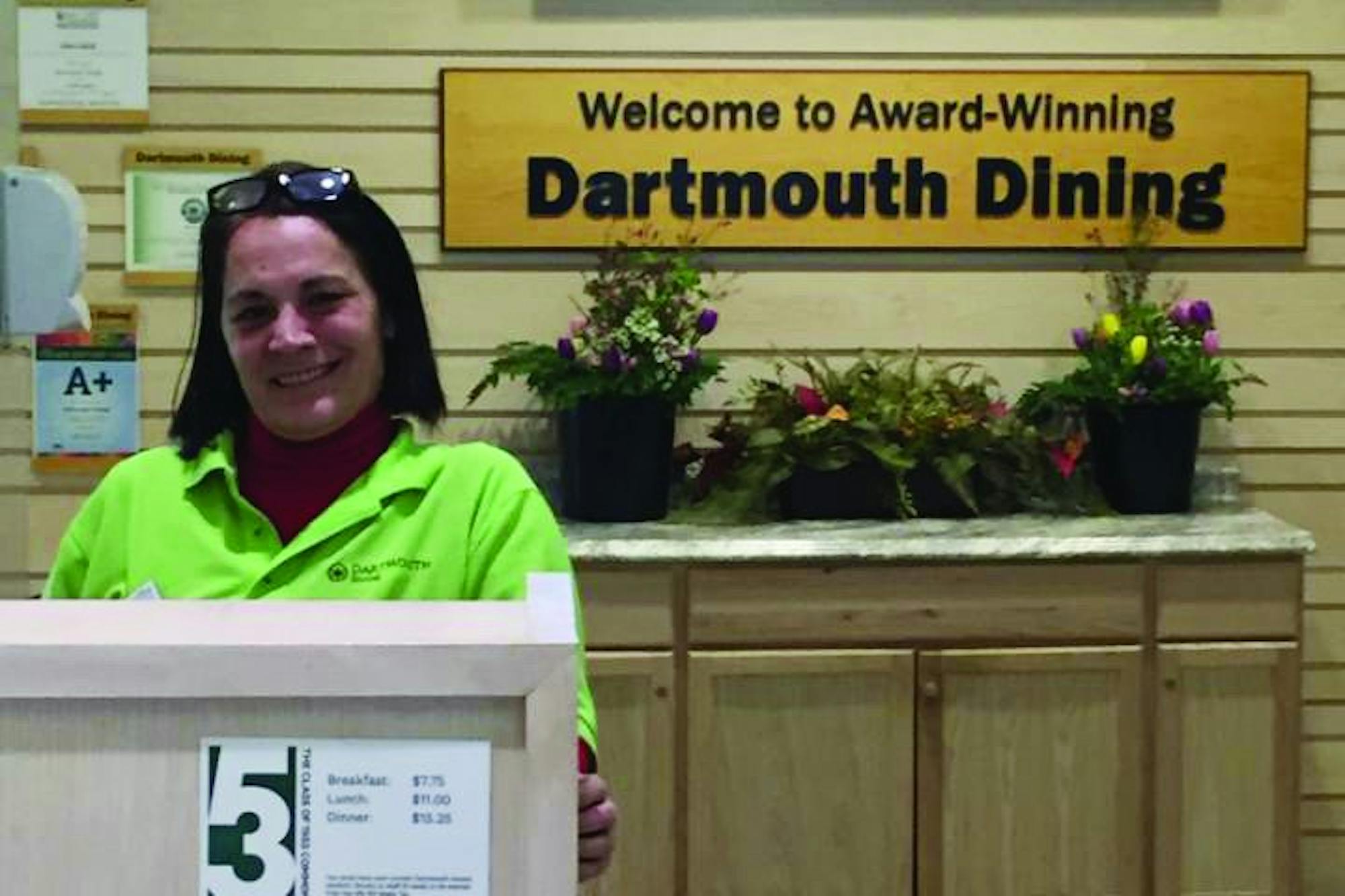Swiping in and greeting students at ’53 Commons, Dawn Fandino has interacted with most members of the Dartmouth community. Unbeknownst to many people, Fandino has right-side body paralysis from a hemorrhagic stroke she suffered six years ago, which has resulted in life-altering effects for Fandino and her family.
On April 7, Fandino’s partner of 13 years set up a GoFundMe page to cover the costs of a stem cell treatment that could potentially increase her quality of living. The campaign has currently reached $1,190 of its $7,600 goal, with many of the donations coming from Dartmouth students.
Fandino has worked as a greeter at the Class of ’53 Commons since last August. Fandino previously had a career in the apparel industry in New York but stopped working after her stroke. After being unemployed for five years, she began work with DDS, her first position since the stroke; however, her condition has made her work difficult, she said. While working, she sits in a chair and uses her left hand to swipe student IDs. She also uses a cane to walk and has difficulty reading and spelling. Fandino describes walking with paralysis as “dragging dead weight around.”
Fandino said the stroke caused bleeding in her left hemisphere basal ganglia, an area that governs movement and muscle coordination. This resulted in right-side paralysis and also limited her physical and cognitive abilities. She said she hopes that an experimental stem cell treatment will help her regain some of the motor deficiencies she lost due to the hemorrhage.
The therapy she is interested in involves a set of injections given directly into the brain to regrow the damaged neurons. Fandino said that the $7,600 the treatment would cost is not covered by insurance. Being treated would require that she travel to a clinic in Boston or to her home state of Florida, according to Fandino.
The treatment Fandino is seeking arose from a 2016 trial which found that damaged caused by strokes can be healed with the injection of stem cells. Though experimental, the potential treatment has garnered optimism in the scientific community — but there are still many potential risks associated the treatment.
Although there is no guaranteed success from the procedure, Fandino said she believes that this is the only treatment available for her. She hopes that the treatment can help her walk without using a cane and perform other tasks on her own.
“If I get stem cell therapy, I would have use of this side of my body again,” Fandino said.
As a ’53 Commons greeter, she has touched many students simply by saying hello to them or asking about their day, according to Akash Seetohul ’22, who donated to the page. He said that during his freshman fall, Fandino would always cheer him up by saying hello, as he walked into ’53 Commons.
“I also worked with her at ’53 Commons ... and she was very sweet to me,” Seetohul said. “I had no idea about her medical issues because she is always cheerful.”
This positive attitude makes Fandino beloved by the Dartmouth community, according to DDS director Jon Plodzik. He added that Fandino is a “wonderful” representation of DDS.
“Dawn is enjoyed by many of our students, as I often see her talking to them about classes, projects and life plans,” Plodzik noted.
While being interviewed, Fandino was busy greeting students, many of whom recognized her and said hello.
“I want to make people feel good even when I’m not feeling good,” she explained.
She works on Monday, Wednesday and Friday mornings and goes home to rest for the remainder of the day after her shift. She said that she believes that getting access to this treatment means that she could do things that many people take for granted, such as working, showering or even trimming her nails on her own.
As for the donations of the GoFundMe page, Fandino is grateful for all of the contributions she has received thus far.
“Dartmouth has rallied behind me in ways I never expected,” she said.




